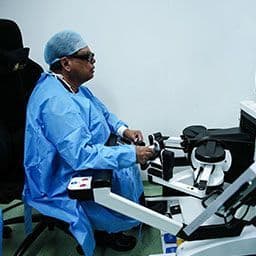
A friend once asked me, “Are you from a military family?” He meant it completely seriously. I was surprised to hear it, I laughed and honestly, a little amused too because I am not from a military family. But I understood exactly where the question came from. We were colleagues and he was struggling to work with me. He was figuring me out professionally, as we all do in the workplace. At one point he said, “You are so disciplined. It is interesting to see.” That actually made me pause. It was not something I would ever label about myself. Maybe he was right but not in the way most people think about discipline.
I grew up in a house where if my parents said we were going to the market at 6 PM on Wednesday, we went and never postponed it even if there was rain or if someone was tired from work. Six o’clock meant six o’clock. At the time, that just seemed like life. It was all about commitments, no matter how small they were. There were no excuses or no “let us push it to tomorrow.” It felt normal. Only later I realized it was not normal, not every family functioned that way.
That realization hit me especially once I became a parent. I could see the same patterns emerging in my home and it made me deeply think of how much those small routines had shaped me. Because what looked like discipline from the outside was actually something more natural.
Discipline as a Living Value
The word discipline often carries a cold and intimidating tone. But in truth, discipline is not about being rigid rather it is showing up when you said you would. It is honouring your word even when nobody is watching you.
Being in health tech professional field, we place huge emphasis on strategy, innovation and leadership. We are not just innovating but also saving lives. With the practice of all factors like time management and innovations, people often forget the invisible foundation of all, that is the discipline we maintain in order to lead an innovation with purpose and reliability. If you look at any successful organization or a professional, you will find discipline at the root. It is not anything flashy or perfectionism but a pattern of reliability. That is the version I learned growing up and it is also the one I try to teach my children every day not through any lectures but through daily repetition of simple acts.
What Discipline Looks Like in Practice
- Showing up on time even when running late would go unnoticed.
- Keeping promises that may be just mentioned briefly.
- Making space for learning even when the schedule is tightly packed.
None of these seem extraordinary but consistently doing them changes your professional reputation in permanent ways. People begin to trust your word and see you as someone dependable regardless of mood or circumstance.
Passing It on to the Next Generation
As a parent raising two boys, I often reflect on how those early family principles have now translated into daily lessons at home. We live in a world that celebrates flexibility and there is no doubt in that. But without a structure, flexibility will turn into chaos.
When we teach children discipline, we are teaching more than obedience, we are teaching them reliability and self-respect. The practice of small rituals at home like finishing what they start and showing up to school prepared will turn into an early lesson of being disciplined. These when carried into adulthood helps them in forming a foundation for their behaviour, which in turn will help them from teamwork to leadership.
Discipline in the Professional Life
Discipline shows responsibility.
Many professionals seem to struggle with discipline because they wait to feel inspired or rely on motivation. It is easy to be motivated to start but it is hard to maintain the efforts. When motivation brings in doubt sometimes, discipline takes over and bridges the gap. In leadership, discipline has a huge influence. Teams usually tends to look at the consistency of their leaders. Imagine a leader regularly missing deadlines and cancelling meetings. How likely do you think the teams will operate any differently from their leader?
Discipline in the workplace often expresses itself only in subtle ways but they will be highly impactful too. It extends from consistency in communication to self-management of work routines. Every leader no matter how visionary they are, they rely on disciplined execution of plans.
The Emotional Side of Discipline
Here is the part we often overlook that discipline feels good not in a congratulating way but in the peace, it brings within you. When you honour your commitments to work, to family and to yourself, you are truly creating an emotional harmony. It pushes you in producing confidence and you start to trust yourself.
Discipline is not merely a behaviour but an emotional anchor. It gives you stability in times of chaos and gives you clarity when you face uncertain situations.
How do you practice discipline in your life?

When Innovation Meets Trust: Inside India’s First Remote Robotic Cardiac Surgery

Why Custom AI Agents Will Outperform Generic Tools

Riding the Waves: Finding Depth and Purpose in Healthtech
